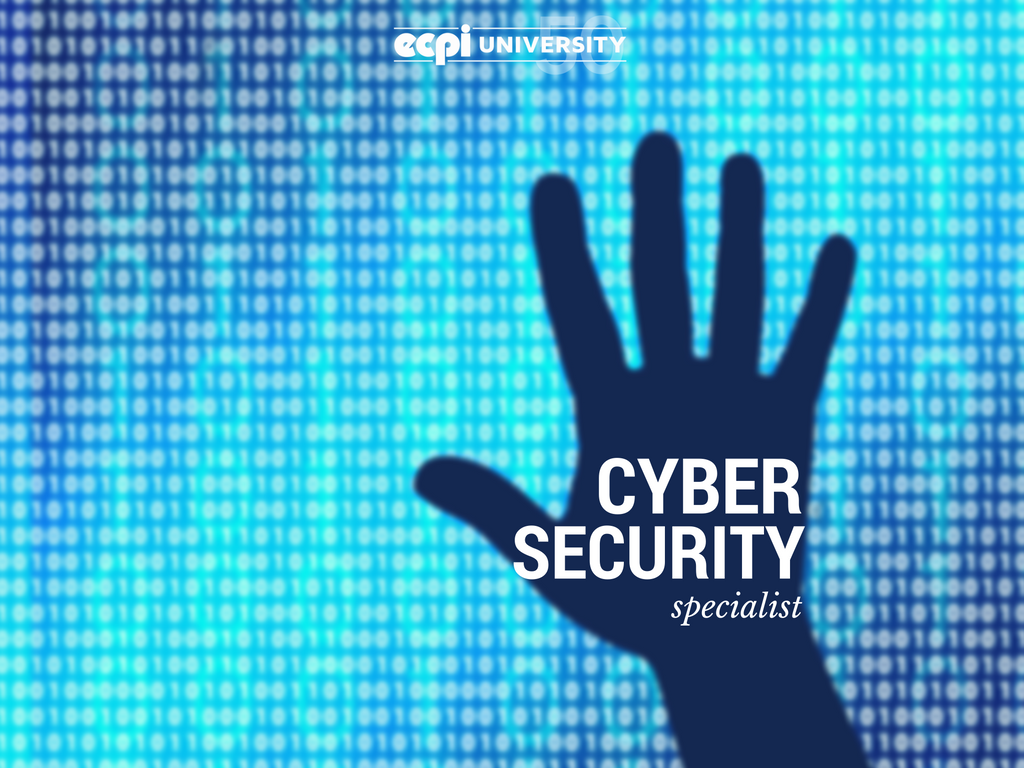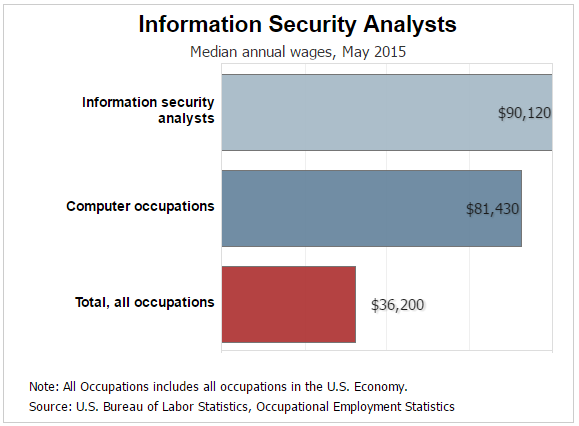How to Become a Cyber Security Specialist
According to a comprehensive search of most stock image libraries, becoming a cyber security specialist involves buying yourself a nice pair of sunglasses. Apparently, though, the path into cyber security is much more challenging than that. In fact, even pinning down the requisite skills is difficult, says the Institute of Electrical and Electronics Engineers (IEEE). So, which is it—a field easy to get into, or a field full of unknowns? How do you become a cyber security specialist?
Ask the Government
One of the largest employers of cyber security specialists is the federal government. Nearly every agency has need for experts in protecting vital records, thwarting security attacks and breaches, and building strong defense. The National Initiative for Cybersecurity Careers and Studies (NICCS™) has 31 categories of cyber security work. This means 31 niches to specialize in as a cyber security professional. A sampling gives a hint of the interesting, important work:
- Targets
- Vulnerability assessment and management
- Technology research and development
- Threat analysis
All 31 Specialty Areas require a broad range of knowledge, skills, and abilities. Quick response is needed to shut down intrusions; thoughtful planning is needed to develop cyber defenses. Diplomatic skills, language fluency and an investigator’s zeal are all valued.
IEEE
Cyber security is a crossroads of skills, but has its roots in computing, which means electronics engineers are part of its foundation. This is why IEEE has a stake in the future of not only cyber security but our country’s security. IEEE points out that the field is still new enough that no group of experts has set universally accepted standards for the many facets of cyber security. Credentials are a move toward that standardization, but, alone, are not enough:
“You really have to have that body of knowledge, along with some means of assessing if a person understands that knowledge and can apply it creatively against whatever problems an organization faces,” says researcher Francesca Spidalieri from the Pell Center at Salve Regina University, in Newport, R.I. “That’s the language of a profession.”
Credentials
Let’s say credentials are one leg of the three-legged stool that props up your cyber security career. With specific coursework and marketable skills, credentialing can help you land an entry level job in cyber security. From there, your natural talent and continued skills acquisition moves you up the career ladder. You will dig deeper into an ever-narrowing specialty.
How do you get Credentials?
IBM recommends a path to work as a cyber security specialist that begins with research and study, but continues to... more research and study. Credentials that most cyber security specialists have found useful in the past point the way toward future growth in the field:
- Certified Ethical Hacker (CEH)
- Certified Information Privacy Professional (CIPP)
- Certified Information Systems Security Professional (CISSP)
- Certified Information Systems Auditor (CISA)
- Certified Information Security Manager (CISM)
- Certified Protection Professional (CPP)
- Project Management Professional (PMP)
EC-Council
The Wright Brothers had to invent airplane parts before they could invent the airplane. No governing body existed, no parts warehouse was a call away. Similarly, in the absence of any other standards, individual groups set out to create standards for credentialing in cyber security. The International Council of E-Commerce Consultants, also known as EC-Council, is the world’s largest cyber security technical certification body. After the 9/11 terrorist attacks, it took upon itself the task of training and certifying information security professionals. Today it operates in over 140 countries and provides rigorous certification testing to thousands.
Getting the EC-Council’s Certified Security Specialist (ECSS) credential allows you to boost your skills in three different areas:
- Information security
- Network security
- Computer forensics
Keeping an organization’s information secure against unwelcome visitors not only safeguards customer and employee information, it gives a company a competitive edge against less secure rivals. Cyber security specialists are extremely valuable parts of any organization, private or public.
Value
The Bureau of Labor Statistics (BLS) calls cyber security specialists by another label, Information Security Analysts, but the workload is the same. The salaries for these specialists are much higher than the national average:
- May 2015 median annual wage for information security analysts: $90,120
- May 2015 average annual wage for all employees: $36,200
- Wage advantage by being an information security analyst: $53,920
Education
The other two parts of the three-legged stool that props up your cyber security specialist career, remember, are coursework and skills. ECPI University offers three levels of cyber security degrees. Start out with an associates, learn more with a bachelor's, become an expert in your field with a master's. If you'd like to learn more about the cyber security programs offered, contact ECPI University now!
It could be the Best Decision You Ever Make!
DISCLAIMER – ECPI University makes no claim, warranty, or guarantee as to actual employability or earning potential to current, past or future students or graduates of any educational program we offer. The ECPI University website is published for informational purposes only. Every effort is made to ensure the accuracy of information contained on the ECPI.edu domain; however, no warranty of accuracy is made. No contractual rights, either expressed or implied, are created by its content.
Gainful Employment Information – Cybersecurity - Master’s
Gainful Employment Information – Cyber and Network Security - Bachelor’s
For more information about ECPI University or any of our programs click here: http://www.ecpi.edu/ or http://ow.ly/Ca1ya.





